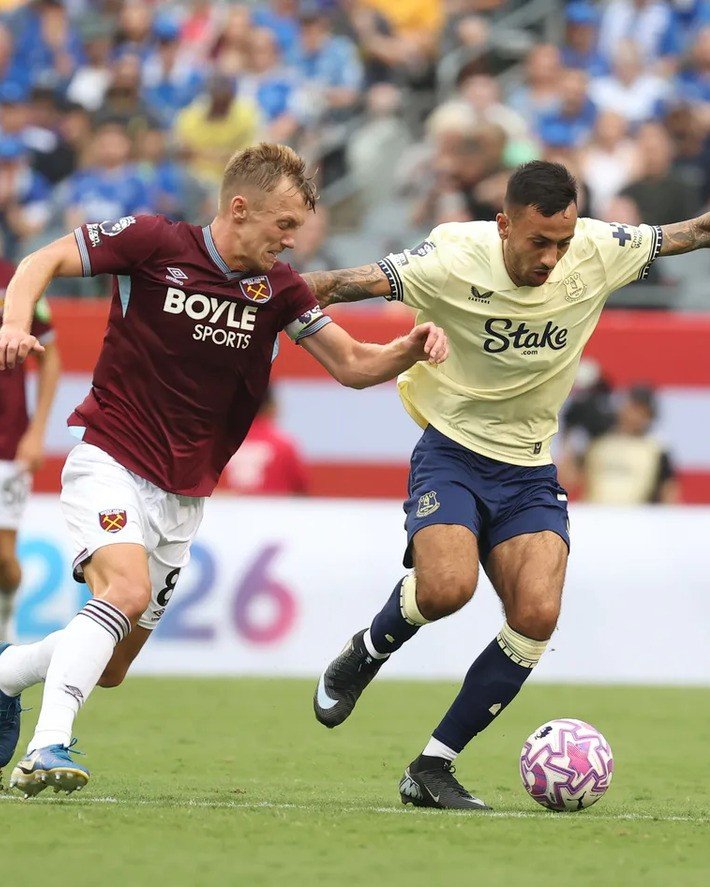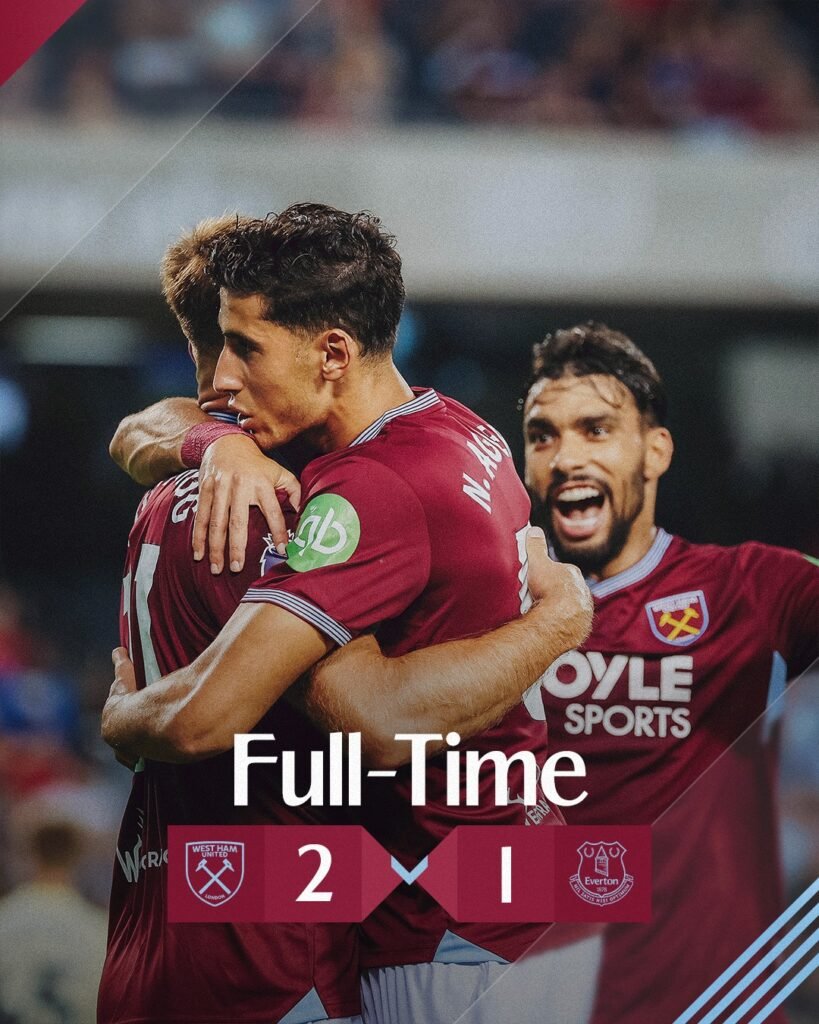The fixture between West Ham United and Everton has always been more than just another Premier League clash for UK football fans. This week’s encounter in the Premier League Summer Series, staged at the iconic Soldier Field in Chicago, lived up to the hype and offered plenty for supporters and pundits alike to dissect. With both clubs seeking renewed momentum ahead of the new season, every minute on the pitch mattered—and by the final whistle, it was West Ham who came out on top, overcoming Everton 2-1 in a match full of drama and talking points.
Pre-Match Buzz: Summer Series Stakes
Despite being thousands of miles from East London or Merseyside, the buzz around this friendly fixture was palpable among the travelling fans and viewers back home. The Summer Series has become a crucial staging ground for clubs to try new approaches and give fresh signings a chance to blend in. For West Ham, guided by Graham Potter, and Everton, helmed by David Moyes, the clash served as both a preview of the season ahead and a test of their pre-season preparations.
A First Half Defined by Errors
The Hammers started brightly, enjoying the majority of possession and creating early chances, only for Everton to draw first blood after a costly West Ham mistake. On 17 minutes, West Ham’s Kaelan Casey was caught out in midfield, allowing Harrison Armstrong to break away. He found Idrissa Gana Gueye, Everton’s captain, who finished smartly under the gloves of Wes Foderingham.
West Ham, however, refused to let their heads drop. They pressed forward and were rewarded late in the half when Everton’s new goalkeeper, Mark Travers, committed a calamitous error. His botched clearance off a diagonal pass resulted in the ball rebounding for Lucas Paquetá to tap into the net, levelling the score before the break.
Potter’s Gamble Pays Off
Graham Potter made a raft of changes at half-time, ringing in seven substitutions and injecting even more urgency into his side. Among the new arrivals was Niclas Füllkrug, the German striker whose sharpness soon made a difference. On 64 minutes, Füllkrug latched onto the ball just outside the penalty area and rifled a low drive into the bottom corner, giving West Ham a deserved lead and bringing the away fans to their feet.
For Everton, positive news came in the shape of James Tarkowski’s return from injury, as the defender made his first appearance since May. However, the Toffees seldom threatened to level the match, with Charly Alcaraz’s late header providing their best—yet fruitless—opportunity.
Post-Match Reaction: Honest Appraisals
The significance of the result was not lost on either manager. Speaking after the defeat, David Moyes was candid about his team’s shortcomings, both on the night and across pre-season. “We’re not ready to perform well enough in this tournament. We’re not ready to start the Premier League season,” Moyes stated, criticising both his side’s attacking output and the individual errors that cost them so dearly. He highlighted the need for fresh signings and greater depth, especially after consecutive defeats had exposed frailties in attack and defence.
Moyes did, however, praise Tarkowski’s comeback and the appearances of new signings, maintaining that results were less important than giving his squad vital minutes on the pitch. The message was clear: urgent improvements will be needed before the Premier League campaign begins if Everton are to match supporters’ ambitions.
For West Ham, a sense of satisfaction prevailed. Niclas Füllkrug’s decisive finish was evidence of Potter’s improving influence, and players like Lucas Paquetá continued to demonstrate their value to the squad. The Hammers’ ability to come from behind and maintain high possession—over 70% in the first half—showed both grit and attacking intent.
Expert Views and What Comes Next
Analysts have pointed out that while Everton’s defence was stretched thin, West Ham’s pressing and possession games are showing promising signs under Potter’s tenure. The Hammers’ supporters, hopeful of a more stable campaign after recent years of mixed fortunes, will be encouraged to see newcomers like Füllkrug settle in so quickly.
Both clubs will return to UK soil shortly, but the implications of their Chicago showdown are sure to carry through into the first weeks of the Premier League. West Ham are set to face Bournemouth in Atlanta for the final round of the Summer Series, while Everton’s focus will turn to bolstering their squad and ironing out errors before the curtain rises on their league campaign.

Final Thoughts: Rivalry Renewed, Questions Remain
In the end, West Ham’s 2-1 victory over Everton was a microcosm of the broader narratives at play for both teams: resilience, adaptation, and the persistent need for improvement. As UK fans reflect on this latest instalment of the Irons versus Toffees rivalry, anticipation grows not just for rematches, but for the fortunes of both clubs as the new Premier League season approaches.
West Ham’s fans can dream a little, buoyed by a win and emerging talents, while Everton’s faithful hope for reinforcements and a swift turnaround. One thing is certain: when these two sides meet, whether at Goodison Park, the London Stadium, or halfway across the world, UK football finds plenty to discuss—and plenty to look forward to.
The Rivalry in Context
The meetings between West Ham United and Everton have often delivered moments of drama and unpredictability for UK football fans. Historically, both clubs have been Premier League ever-presents, yet have followed different trajectories. While West Ham have flirted with European competition in recent years, Everton have struggled for consistency, often finding themselves fighting to avoid relegation. Each encounter is therefore not just about points, but about pride and progress.
Conclusion:
West Ham’s narrow win over Everton in Chicago highlighted both clubs’ contrasting fortunes and directions ahead of the new Premier League season. The Hammers showcased encouraging signs of progress under Graham Potter, while Everton were left with urgent issues to address before competitive action begins. As the new campaign approaches, both sets of fans have reasons for optimism—and, in Everton’s case, a clear sense of what must improve to turn potential into points.
Read More: Manchester United beats Bournemouth in Chicago

